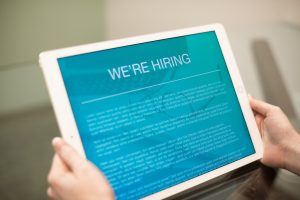 Why is it that when you have the most important interview of your life, everything seems to go wrong? Murphy’s Law? Actually, it’s a bit more personal than that.
Why is it that when you have the most important interview of your life, everything seems to go wrong? Murphy’s Law? Actually, it’s a bit more personal than that.
Even without getting too introspective, most of us can acknowledge that so much of what happens in our external world begins in the mind.
If you’re worried about something bad happening, it seems much more likely that a bad thing is going to happen.
And there is at least one simple answer for this phenomenon: Anxiety.
Table of Contents
Letting Anxiety Run the Show
When you have chronic anxiety, you aren’t going to be making the best decisions.
Anxiety has a purpose and it is good for quick thinking and action when you’re faced with acute problems. But the kind of anxiety you’re feeling when you’re up against a bit interview is more intense. In many cases, it’s the culmination of everything you’ve worried about for months.
Before a big interview, you feel like the weight of the world is on your shoulders. Usually, these interviews are connected to jobs that are life-changing in some way. Maybe this job will solve your money problems or open doors that no other job could.
We put too much pressure on these interviews, and then it shows. One of your first goals is to find your calm and lessen your anxiety so that you can adequately prepare and be level-headed during the interview.
Over preparing
Believe it or not, there is such a thing as being over prepared. If you spend all your free time prepping, you’re probably going to cover a lot of ground in a short time.
And while that sounds like a good thing, combined with anxiety, it can be the worst.
If you’re trying to consume too much information and are dealing with anxiety, you’re likely to get confused and forget the important stuff when it matters.
Before your big interview, organize the things you want to focus on and digest what you think is reasonable. It could help to determine the candidate standards so that you have a guide to what you want to prepare for. Don’t try to be the know-it-all who can answer every question. Instead, focus on getting the important ones right.
Using Unhealthy Coping Mechanisms
When you’re feeling especially stressed out, you might be tempted to turn to unhealthy coping mechanisms, like alcohol. And while a nightcap before an important interview isn’t a major problem, if you have more than just a drink, you might struggle to get a good night’s rest.
Studies have shown that alcohol can interfere with your body’s ability to get a deep, restful sleep. Even if you don’t think you’re waking up at night, you might not be getting the restorative REM sleep you need before that big day.
Instead of alcohol on the night before your interview, consider trying something healthier, like chamomile tea or kava. You don’t want to risk feeling less-than your best the next morning.
You may also consider meditation. It’s helpful to calm your mind and clear your head. And, studies have shown that mediation is an effective way to battle anxiety. You may even see some benefits if this is your first meditating experience.
Not Asking Questions

When you’re in front of the interviewer, it’s important to remain calm and answer questions as honestly as possible (while still making yourself sound great). And when the time comes, be sure you have some questions ready to ask.
You should have already done your research on the company, so don’t ask basic questions that you could have Googled. Instead, consider asking your interviewer to describe the company culture or about turnover rates. Questions like these show that you’re interested in what it’s really like to work there.
If the interviewer gets uncomfortable with them, it’s a sign that the company may have a toxic culture. Remember that you’re also interviewing the job. If something is off, you may want to reconsider.
Lack of Follow-Up
These days, it may seem like a good idea to pretend this interview isn’t a big deal… like you’ve got offers lined up down the block. But if this potential job means a lot to you, don’t act so aloof. You don’t have to come across as over-eager, but be sure to follow up after the interview.
If you want to go the extra mile to stand out, take it old-school and send a thank you card to your interviewer. You can bet that they will remember you. And even if you weren’t the right fit for the job, they’re much more likely to get back to you with a personal response (and possibly reach out to you with future opportunities.) Bottom line: Make that post-interview followup stand out.
Interviewing is always a stressful experience, and that’s okay. You can feel some level of anxiety and still rock that interview.